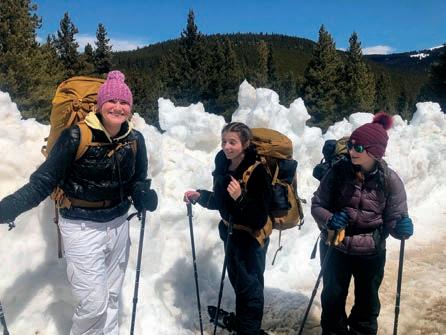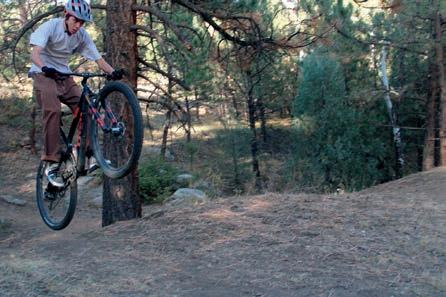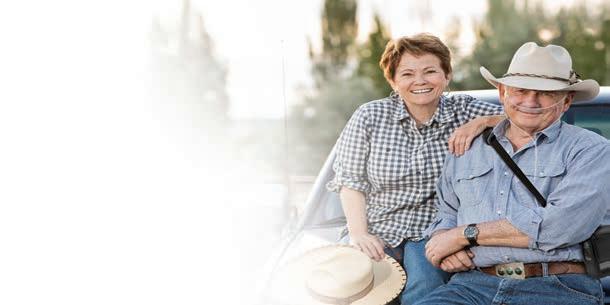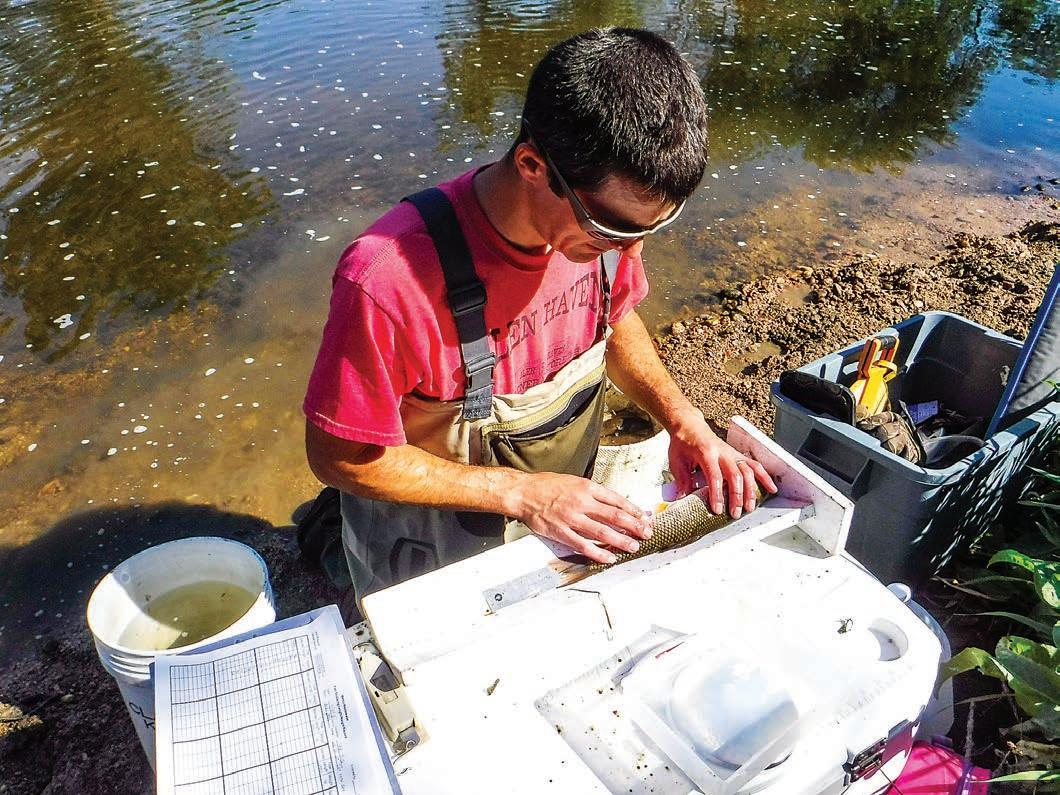
4 minute read
RIVER
macroinvertebrates, including sensitive species, this indicates good water quality. Dissolved oxygen is just one important aspect of overall water quality,” Harman said.
Harman said these macroinvertebrates tell them what they do and a lot about water quality. If certain kinds of bugs are present, the water quality can sustain these macroinvertebrates, and they’re also an essential part of the food chain for the sh that consume these bugs.
“We amended that agreement and since then we built four di erent drop structure locations along the river to improve habitat and will select a fth spot to construct by fall. en when complete, we will go into phase six and continue ongoing monitoring of aquatic life forever at all these locations,” Dorsch said.
Dorsch said to improve the water quality, stirring it and building miniature waterfalls to put the oxygen back in the river over time, so it starts to get better. In addition, they will place large rocks that will provide protective cover for sh, create pools close to the bank of the fast-moving water—trees will be plants and shrubs for aquatic shade and creates a riparian zone, which is a vegetation area between land and river.
e Metro Water Recovery scientists will stock the river with Colorado native species, primarily minnows, they said.
“ ey are not very big, but we love our native species and want to protect them every chance we can,” Dorsch said. “We also target Johnny Darters and Iowa Darter which are the most sensitive species of minnows in the South Platte River.”
While Metro is working on the Platte River project, Dorsch said shing will still be allowed even when constructing ri es which are fast-moving sections of stream and other habitat improvements farther down the river. e scientist will continue to monitor the water quality daily and how much sediment is released during construction e orts.
“We don’t want that sediment going downstream and impacting aquatic life. My sta and I are out here every day checking on what’s going on and what’s gone wrong. If there are problems, we will correct it,” Dorsch. e Metro Water Recovery scientists’ work didn’t go unnoticed in saving the aquatic life on the river — they received the National Environmental Achievement Award from the National Associations of Clean Water Agencies (NACWA) for the South Platte River Aquatic Life
Habitat Improvements Projects, according to a news release. is fall, the honorees will be recognized at the NACWA’s winter conference in Sonoma, CA.








“We love getting awards, (but) like most biologists — we come in do our job,” Dorsch said.
“It’s nice to get the award,” Harman added. “People aren’t aware of the work we do, so it’s kind of nice to get some recognition and people realize we’re out here in the river.” getting fully vaccinated, including the latest booster. “We know that vaccination lessens the risk of long COVID, lessens the severity of initial disease,” she said, noting the lagging number of people getting the omicron booster in Colorado. Currently, only about a quarter of eligible people in the state have received the omicron booster, according to the state’s vaccine dashboard, far below the uptake for the initial series of vaccines. e report includes testimonials from Coloradans that provide a window into what its authors described as the “immense human costs” of the illness:
Chelsey B., 49
“I went from being a t, active, successful and nancially secure professional in the prime of life to a broken — and broke — person,” Chelsey reported. “COVID kills some people outright; many of us with long COVID are dying, too — just very slowly and painfully.”
Melissa, 54


“Four months after my initial symptoms in March 2020, my heart still raced even though I was resting,” Melissa reported. “I could not stay in the sun for long periods; it zapped all of my energy. I had gastrointestinal problems, brain fog, extreme fatigue, ringing in my ears and chest pain.”
Melissa said her condition improved but reported that she was still feeling symptoms nearly three years after her initial COVID infection.
Amanda, 35 Amanda reported testing positive for the coronavirus in November 2020. “COVID has wrecked the person I thought I was before. I now have been forced to go back to full time work against my cardiologist recommendations,” she said. “ is was in fear of losing my job I’ve had for 7 years! I am 35 years old and have heart problems I’ve never had before,” including a racing heart rate that becomes elevated from a laying down position to standing.
“I am newly engaged and scared to think about having children due to what COVID has done to my body.
I am 100 percent a di erent person after COVID.” e report also notes there’s a signi cant overlap between long COVID and myalgic encephalomyelitis/chronic fatigue syndrome. One resident named Jane described suffering from that condition.

“ e illness severely limits my participation in my grandchildren’s lives, and my own daily life. I can only be vertical for one to one and a half hours at a time, and then I have to rest for an extended period,” she said. “I miss out on so much, and activities of daily living such as housekeeping, exercising, and socializing are severely limited.” e long COVID report is the rst such annual summary authored by e O ce of Saving People Money on Healthcare for the governor and lawmakers. e state aims to develop baseline data and monitor the e ects of COVID-19 on Colorado’s economy, workforce, medical and long-term care needs, health care a ordability and educational attainment. e report notes the illness is uncharted territory, both for medicine and government policy. It recommends better data collection and disease surveillance, collaboration between various institutions and improved care access for patients facing challenges at home, work or school. e o ce has also hired a senior policy advisor on long COVID, Dr. Mirwais Baheej, who was unavailable for an interview.



Another data point about the impact of long COVID comes from insurance claims. e Center for Improving Value in Health Care provided the state with a dataset of claims from a database of state insurance carriers, including Medicaid and Medicare.

It found around 16,000 Coloradans had gotten a long COVID diagnosis between Oct. 1, 2021, and Aug. 31, 2022. e report’s authors said that was likely an undercount based on several factors.
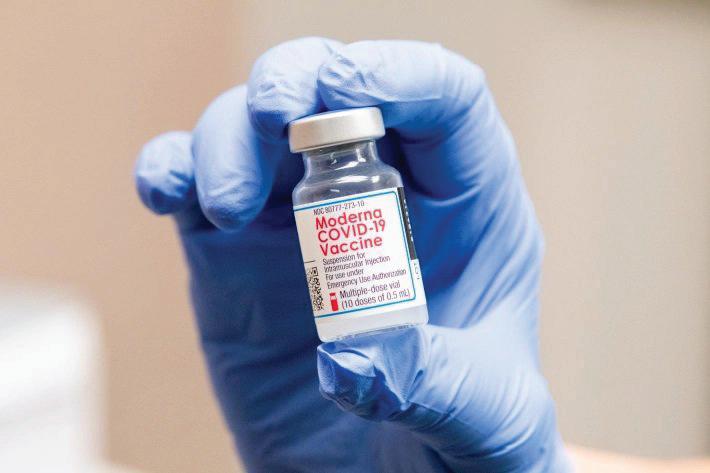
“As far as we know, there are no other states undertaking similar work at this time although the White House has published two reports on long COVID,” said Lt. Gov. Dianne Primavera in an introductory letter to lawmakers and the governor. “We do hope to partner with the federal government as we move forward.” is story is from CPR News, a nonpro t news source. Used by permission. For more, and to support Colorado Public Radio, visit cpr.org.
